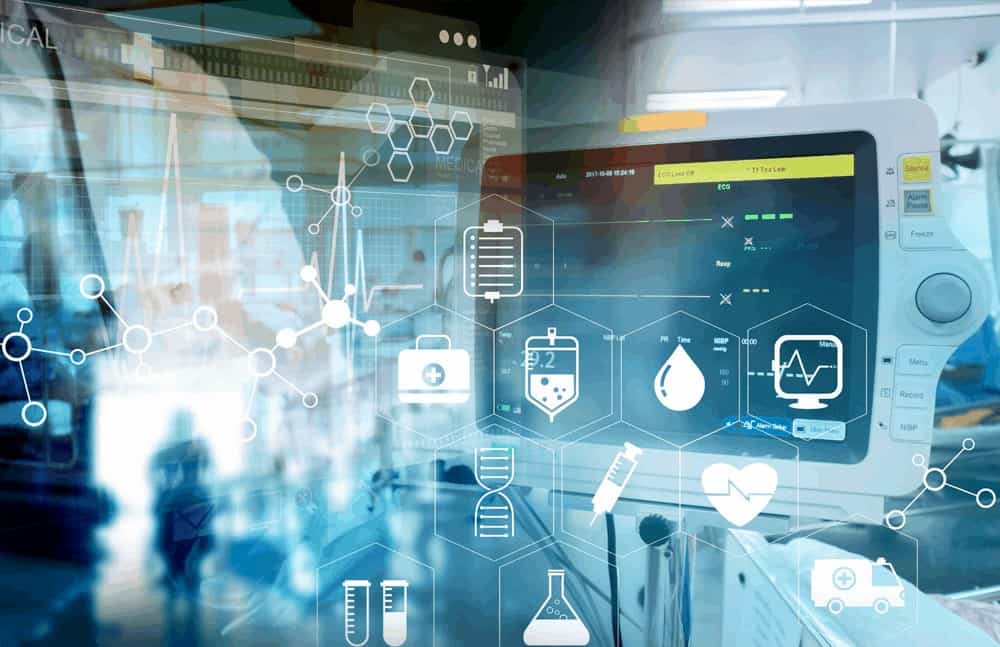Innovations Shaping Medical Coding’s Future
The landscape of medical coding is rapidly evolving, driven by innovative technologies that promise to revolutionize the industry. This essay delves into the innovations shaping the future of medical coding and their implications.

1. AI and Machine Learning Integration
The integration of Artificial Intelligence (AI) and machine learning technologies is a game-changer in medical coding. These technologies analyze massive datasets, recognize complex patterns, and suggest accurate codes, significantly enhancing coding accuracy and efficiency.
2. Natural Language Processing (NLP)
NLP algorithms allow computers to understand and process human language. In medical coding, NLP facilitates the conversion of clinical narratives into structured codes. This innovation streamlines the coding process and reduces the reliance on manual interpretation.
Transforming Efficiency and Accuracy in Medical Coding
Innovations in medical coding are poised to enhance both efficiency and accuracy in the coding process.
1. Real-time Coding Assistance
AI-driven systems provide real-time coding assistance to human coders. This proactive guidance reduces errors, accelerates coding, and ensures codes are up-to-date with the latest guidelines.
2. Automated Code Suggestions
Advanced algorithms analyze electronic health records and suggest appropriate codes. This automation eliminates time-consuming manual code searches, leading to faster and more accurate coding.
Challenges and Benefits of Innovative Coding Technologies
While innovative technologies offer remarkable benefits, they also come with challenges that need to be addressed.
1. Integration and Training
Introducing new technologies into existing coding workflows requires integration and training. Healthcare professionals must adapt to these changes, and institutions need to allocate resources for proper training.
2. Ethical Considerations
Innovations raise ethical questions, particularly in data privacy and security. Protecting patient data and ensuring responsible AI usage are paramount concerns that must be addressed.
Future Outlook and Impact
The future of medical coding is set to be transformed by these innovations, with profound implications for healthcare.
1. Improved Patient Care
Efficient and accurate coding translates to improved patient care. Accurate codes ensure appropriate treatments and billing, contributing to patient satisfaction and overall health outcomes.
2. Data-Driven Insights
Innovative coding technologies generate valuable data insights that can inform healthcare decisions. Analyzing coded data can identify disease trends, treatment effectiveness, and areas for improvement in healthcare delivery.
Innovations in medical coding, driven by AI, machine learning, and NLP, are shaping a future where accuracy and efficiency are paramount. While challenges like integration and ethical considerations exist, the potential benefits are transformative. The healthcare industry stands on the cusp of a new era in medical coding, one that promises better patient care, data-driven insights, and enhanced efficiency.
Overcoming Challenges in Adopting Innovative Coding Technologies
As the healthcare industry embraces innovative coding technologies, certain challenges need to be addressed to ensure a seamless transition and maximize the benefits.

1. Training and Skill Development
One significant challenge lies in equipping healthcare professionals with the necessary skills to effectively utilize innovative coding technologies. Training programs should be comprehensive, covering both the technical aspects of the technology and the underlying medical knowledge.
2. Resistance to Change
Adopting new technologies often faces resistance from individuals accustomed to traditional methods. Overcoming this resistance requires effective change management strategies, clear communication of benefits, and involving stakeholders in the decision-making process.
3. Data Accuracy and Consistency
Innovative coding technologies heavily rely on accurate and consistent data. Therefore, maintaining data quality across different systems and platforms is crucial to ensure the effectiveness of these technologies.
4. Legal and Regulatory Compliance
Healthcare is subject to stringent legal and regulatory requirements, especially when it comes to patient data. Innovations must adhere to these regulations to ensure patient privacy and data security.
The Multi-Faceted Benefits of Innovative Coding Technologies
The innovations in medical coding technologies offer multifaceted benefits that extend beyond just coding accuracy.
1. Cost Savings
Efficient coding reduces claim denials and billing errors, leading to improved revenue cycle management. By minimizing manual intervention, innovative coding technologies also reduce operational costs.
2. Resource Allocation
Automating coding processes frees up valuable human resources that can be redirected to patient care and other critical tasks, thus optimizing resource allocation within healthcare facilities.
3. Insights for Healthcare Management
The data generated through innovative coding technologies provides healthcare administrators with insights into resource utilization, patient needs, and trends in care delivery. These insights can guide strategic decision-making.
Collaboration and the Road Ahead
Collaboration between technology developers, healthcare professionals, and regulatory bodies is essential for the successful integration of innovative coding technologies.
1. Industry Collaboration
Technology developers, healthcare institutions, and regulatory agencies should collaborate to establish standardized guidelines, data formats, and best practices for the implementation of these technologies.
2. Continuous Improvement
Innovation is an ongoing process. Healthcare organizations must be prepared to continuously refine and improve coding technologies to adapt to changing medical practices and regulations.
3. Patient-Centric Approach
Above all, the integration of innovative coding technologies should be centered around improving patient care. Ensuring that these technologies enhance patient outcomes and experiences is paramount.
In conclusion, the innovations shaping the future of medical coding hold immense potential to transform healthcare for the better. By addressing challenges, maximizing benefits, and fostering collaboration, the industry can navigate this transformative journey and ultimately provide more accurate, efficient, and patient-centered care.
